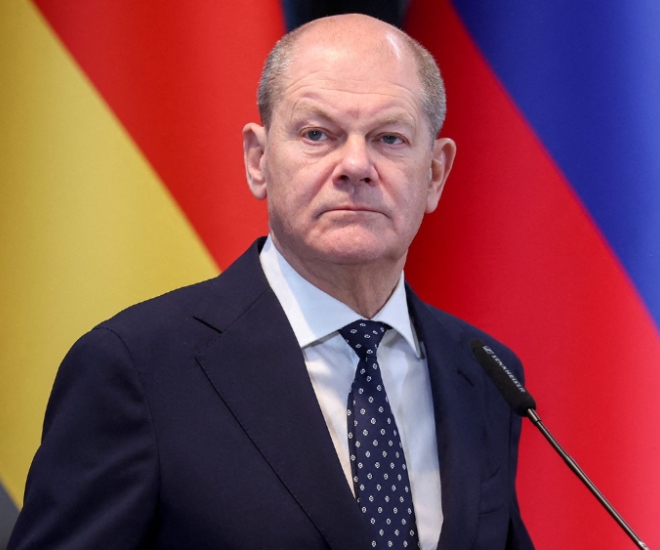
In 2018, as part of their trade war, the US imposed an average tax of 12.5 percent on imports from China. The direct consequence? The Yuan has gradually fallen by a similar proportion. Let the US impose a surcharge on imports from the Eurozone. For the European Union, the best defense will be…
“We Germans look towards Moscow and Warsaw. Paris and London are cities of the past,” a German acquaintance confided to me only three years ago. It was still the golden age for a country convinced that globalisation, so beneficial to its industry, would last forever. Angela Merkel, hailed as the “indispensable European” by The Economist, was considered the most powerful leader in Europe, if not the world!

Read More: Germany Holds Back Europe
However, three years ago, the decisions that would seal Germany’s contemporary fate had already been made by successive Chancellors. They all emphasized their close relationship with Vladimir Putin, showing no critical distance when it came to his gas. Hence, Merkel’s unilateral and far-reaching 2011 decision to dismantle all of Germany’s nuclear power plants. It was decreed that the axis of a new Europe would hinge on the crucial bilateral German-Russian relationship, crowned by Nord Stream, flowing proudly beneath the Baltic Sea. Downstream, the partnership with China would guarantee delightful trade surpluses.

For the country’s economic and political elites, the path seemed clear, regardless of whether German industry was rooted in another century. The combination of high-quality finished products, access to cheap energy, and Chinese markets gave the illusion that Germany could withstand the looming dominance of artificial intelligence.

Yet today, Germany is facing a true existential crisis, as its economic model lies in ruins. It no longer knows who its partners are; it no longer knows who it is. Germany doesn’t know what it excels at anymore, and it has lost sight of its role in the world.
Read More: Opinion: Unemployment Weakens a Government, Inflation Kills It

Chancellor Olaf Scholz, once a staunch advocate of Germany’s special relationship with China, is emblematic of this confusion. Between 2011 and 2018, when he served as mayor of Hamburg, Scholz made numerous visits to China, where the country’s top leaders courted him fervently. Now, as Chancellor, he has been unable to support a European vote to impose tariffs on Chinese electric vehicles. Paralyzed by fears of trade wars, Scholz now openly acknowledges Germany’s dependency on China — a dependency that poses immense challenges for his country.

The reality is that Chinese products are now flooding the German market, and they are highly competitive. Unlike Germany, China — having massively invested in 21st-century technologies — now delivers goods that are not only cheaper, but also of higher quality than those made in Germany.
Germany’s decline is structural, compounded by a loss of autonomy. Such are the side effects of long-standing trade surpluses. Profits may have been reaped but at the cost of dependency and sovereignty.
A version of this article was first published on michelsanti.fr
For more on the author, Michel Santi and his exclusive opinion pieces like this one, visit his website here: michelsanti.fr
For more on the latest in global economic and business reads, click here.

